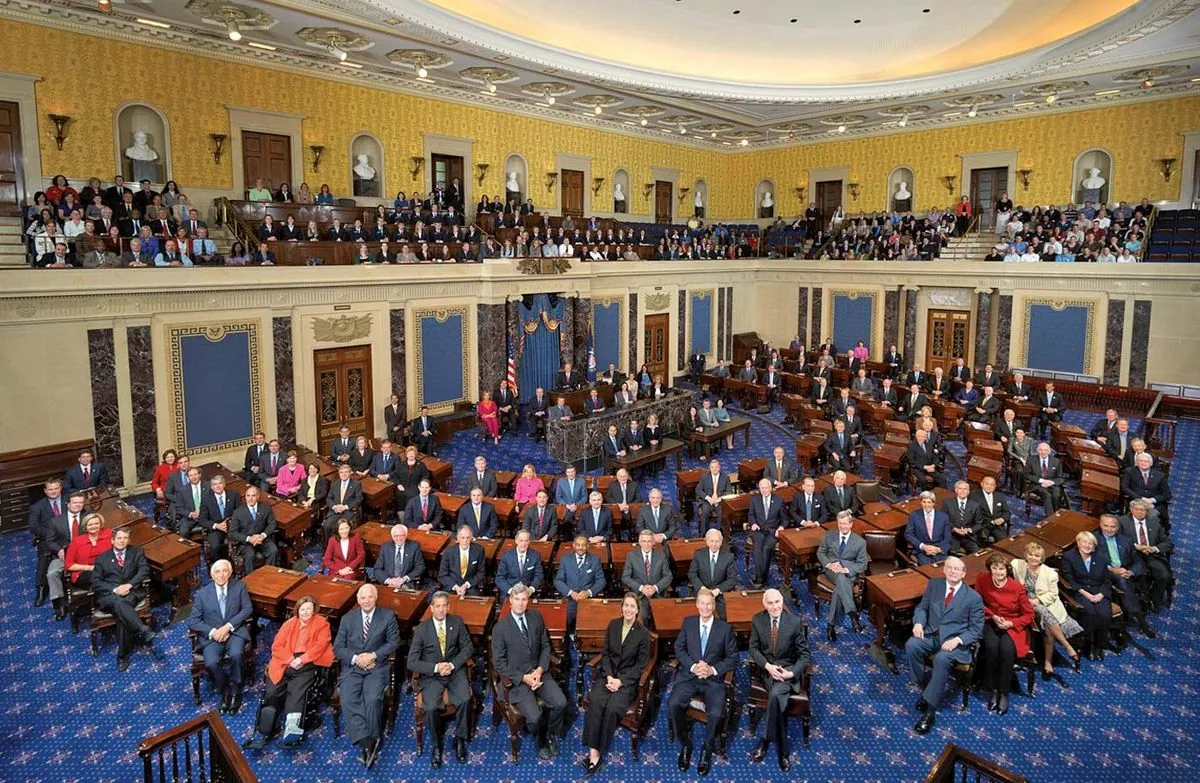Senate Democrats Face Uphill Battle to Retain Majority in 2024
Senate Democrats confront a challenging electoral landscape in 2024, defending 23 seats across diverse states. Republicans see opportunities to flip the chamber with key races in battleground states.

As the 2024 election approaches, Senate Democrats find themselves in a precarious position, defending 23 seats across the United States. The party's slim 51-49 majority hangs in the balance, with several key races in battleground states potentially determining control of the chamber.
Joe Manchin's retirement in West Virginia has effectively guaranteed a Republican pickup, intensifying pressure on Democratic incumbents in traditionally Republican-leaning states. Sherrod Brown of Ohio and Jon Tester of Montana face particularly challenging reelection bids, as they attempt to maintain their seats in states that have trended increasingly conservative in recent years.
The electoral map favors Republicans, with only 11 GOP-held seats up for election. Mitch McConnell, the Senate Minority Leader, has expressed confidence in his party's chances, describing the current situation as "the best map I've seen in a long time."
Key battleground states include:
- Arizona: An open seat contest between Ruben Gallego (D) and Kari Lake (R)
- Michigan: Elissa Slotkin (D) versus Mike Rogers (R) for an open seat
- Montana: Incumbent Jon Tester (D) facing Tim Sheehy (R)
- Nevada: Jacky Rosen (D) defending against Sam Brown (R)
- Ohio: Sherrod Brown (D) seeking reelection against Bernie Moreno (R)
- Pennsylvania: Bob Casey (D) running for a fourth term against Dave McCormick (R)
- Wisconsin: Tammy Baldwin (D) defending her seat from Eric Hovde (R)

These races are attracting significant attention and resources from both parties. Republican challengers are largely focusing on national issues, tying Democratic incumbents to the Biden administration's policies on immigration and the economy. In contrast, Democratic candidates are emphasizing local issues and their ability to secure funding for state projects.
The influence of presidential politics looms large over these Senate races. In states like Michigan, the performance of Kamala Harris and Donald Trump could significantly impact the outcomes of down-ballot contests.
Democrats are also eyeing potential opportunities in traditionally Republican strongholds. In Texas, Colin Allred is challenging incumbent Ted Cruz, while in Florida, Debbie Mucarsel-Powell is taking on Rick Scott. However, these races remain long shots for the Democratic Party.
"The GOP candidates are not of the highest caliber."
As the campaign season intensifies, both parties are pouring resources into advertising and voter outreach. The outcome of these races will not only determine control of the Senate but also shape the legislative agenda for the next two years.
With the Senate's unique powers, including confirming presidential appointments and ratifying treaties, the stakes of these elections extend far beyond individual states. The closely divided nature of recent Senates has highlighted the importance of every seat, as even a single race could tip the balance of power.
As Election Day approaches, candidates will continue to navigate the complex interplay of local and national issues, seeking to mobilize their bases while appealing to crucial independent voters. The results of these contests will have far-reaching implications for American politics and governance in the years to come.


































